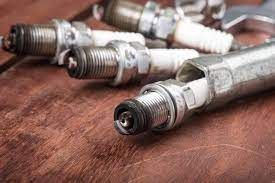Top 5 BMW Maintenance Tips to Keep Your Vehicle Running Like New
Owning a BMW means embracing a legacy of precision engineering, luxury, and high-performance driving. Regular care and attention are essential to keep your BMW running like new. You want to maintain peak performance, extend your car’s lifespan, and avoid costly repairs. That’s where expert BMW maintenance comes in.
From understanding the importance of a tailored BMW upkeep schedule to practical BMW care advice, these tips help you preserve your investment and ensure every drive feels as exceptional as the first.
BMW Expert Maintenance: Why It’s Important
You wouldn’t skip regular checkups for your health, so why should your BMW be any different? Proactive care is essential for a high-performance vehicle like yours. Neglecting regular maintenance can lead to expensive repairs, reduced performance, and a shorter lifespan for your car. Whether you drive a luxurious sedan, a powerful SUV, or a sporty M series, every BMW model benefits from consistent upkeep.
By staying on top of maintenance, you’re not just protecting your investment and ensuring that every drive feels as smooth and exhilarating as it should.
Essential BMW Maintenance Tips: Keep Your Ride Pristine
BMWs are engineered for excellence, but maintaining them requires tailored care based on age and model. Proper upkeep keeps your car running like the day you drove it off the lot. Here are five essential BMW servicing tips every owner should know.
Keep It Smooth: Schedule Regular Oil and Filter Changes
Your BMW’s engine is a finely tuned machine, and clean oil is its lifeblood. Using high-quality synthetic oil and changing it at the manufacturer’s recommended intervals ensures smooth operation and prevents costly engine damage. Don’t forget to swap the oil filter at every change—it’s like giving your car a fresh start every time.
Neglecting this can lead to sludge buildup, which can affect performance and cause long-term issues. Here’s expert guidance on how often your BMW needs an oil change.
Stop on a Dime: Prioritize Brake Maintenance
Your BMW’s braking system is all about safety and control. Regularly inspect brake pads, rotors, and fluid levels to ensure everything works as it should. If you hear squealing, feel reduced responsiveness, or notice a “spongy” brake pedal, it’s time to act. Ignoring these warning signs could compromise safety and lead to more expensive fixes. Learn more about brake maintenance.
Grip the Road: Stay on Top of Tire Care
Your tires connect your BMW to the road, so they need attention. Maintain the proper tire pressure, rotate them every 5,000–7,000 miles, and replace them when tread wear becomes unsafe. Uneven wear can indicate alignment problems, so check those during routine maintenance. Get expert advice on tire care.
Cool Under Pressure: Maintain Your Coolant System
Your BMW’s coolant system prevents overheating and ensures optimal engine performance. Check coolant levels regularly and replace them according to BMW guidelines. Watch for leaks or signs of overheating, such as an illuminated temperature warning light, and address them immediately to avoid costly repairs.
Think Smart: Use Computer Diagnostics for Engine and Other Systems
BMWs are equipped with advanced diagnostic systems to alert you to potential issues before they escalate. Regular scans using an OBD2 scanner or a professional diagnostic service can identify problems early, saving you time and money. Northrich Automotive provides expert computer diagnostics tailored to every BMW model.
Understanding the BMW Upkeep Schedule
Sticking to factory-recommended service intervals is essential for maintaining your BMW and ensuring BMW longevity. These guidelines are meticulously crafted through extensive testing to protect your vehicle’s performance and engineering integrity. By following them, you safeguard your investment and enjoy the exceptional driving experience BMWs are known for.
Here’s a quick reference for your BMW maintenance schedule:
| Time Interval/Mileage | Maintenance Tasks |
|---|---|
| Every 5,000 miles or 2-3 times a year | Brake fluid check, brake inspection, cabin air filter inspection, coolant check, engine inspection, engine oil check, tire rotation (if necessary), vehicle inspection, and wiper blade inspection. |
| Every 10,000 miles or annually | Replace engine oil, oil filter, and coolant. |
| Every 20,000 miles or 2 years | Inspect and replace fuel filters. |
| Every 30,000 miles or 3 years | Replace brake fluid (after the first replacement, every 60,000 miles). Replace manual transmission fluid. |
| Every 60,000 miles or 6 years | Replace the engine air filter and spark plugs. Inspect and replace brake pads and rotors as necessary. Replace automatic transmission fluid. |
| After 90,000 miles or 9 years | Replace timing belts and hoses. |
Your specific model and driving habits may influence these intervals, so always check your owner’s manual for exact recommendations. Staying proactive now can save you a fortune later!
BMW Care Guide: Simple DIY Maintenance Hacks
Not every maintenance task needs a professional touch—you can do a lot on your own to keep your BMW in great shape.
DIY BMW Performance Tips
- Familiarize Yourself with BMW’s Specific Needs: Your BMW isn’t just any car; it’s a highly engineered piece of art. Read the owner’s manual or consult BMW-specific resources to understand your car’s unique maintenance needs.
- Regular Checks for Essential Fluids: Inspect the engine oil, coolant, brake fluid, and power steering fluid frequently. Keeping these at the correct levels ensures your car’s systems operate smoothly and reduces wear and tear.
- Tire Tread Checks: Your tires affect safety and fuel efficiency. Use a tread depth gauge or the penny test to monitor wear, and don’t ignore uneven tread—it might signal alignment issues.
- Use High-Quality Fuel: BMW engines are designed to perform best with premium-grade fuel. Skimping on fuel quality can lead to engine knock and reduced performance over time.
- Battery Maintenance and Inspections: Clean the battery terminals regularly and check the voltage to prevent unexpected breakdowns. Here’s an excellent resource for maintaining your car battery.
- Regular Exterior Washing and Waxing: Wash and wax your car routinely to protect its paint from sun damage, dirt, and road salt. A clean car doesn’t just look good—it lasts longer.
- Proper Cleaning for Interiors: Vacuum often and use appropriate leather or fabric upholstery cleaners. Keeping your interior fresh maintains that luxurious “new car” feel.
- Protecting Your BMW from Environmental Damage: Park in shaded areas whenever possible or use a car cover to shield your vehicle from harsh weather conditions.
Even small efforts go a long way in preserving your BMW’s health and aesthetics. By combining these DIY practices with professional servicing, you’ll enjoy a car that looks great and drives even better.
Contact Richardson BMW Maintenance Specialists
Northrich Automotive is the go-to expert for BMW maintenance in Richardson. With ASE-certified mechanics and state-of-the-art diagnostic tools, we’re equipped to handle every model’s unique needs, from routine oil changes to advanced repairs.
Our customers love our personalized service and attention to detail. Check out our reviews to see how we’ve earned their trust.
What sets us apart?
- ASE-Certified mechanics with years of experience.
- TECHNET Professional Automotive Service Center certification.
- Partnerships with trusted brands like ACDelco and Liqui Moly.
- Customer-focused perks like coupons and discounts for regular maintenance.
Call (972) 685-1437 to schedule your next service today or explore our
comprehensive automotive repair services. Let us keep your BMW performing at its best!
Follow us
Northrich Automotive
Services
List of Services
-
Car A/C RepairCar A/C Repair
-
Wheel Alignment ServicesWheel Alignment Services
-
Brake Repair and ReplacementBrake Repair and Replacement
-
Computer DiagnosticsComputer Diagnostics
-
Check Engine LightCheck Engine Light
-
Clutch Repair ServicesClutch Repair Services
-
Drivetrain RepairDrivetrain Repair
-
Electrical System Service and RepairElectrical System Service and Repair
-
Engine DiagnosticsEngine Diagnostics
-
Exhaust System MaintenaceExhaust System Maintenace
-
Fluid Flush ServicesFluid Flush Services
-
Fuel Injector Repair ServicesFuel Injector Repair Services
-
Oil ChangeOil Change
-
Pre-Purchase InspectionPre-Purchase Inspection
-
Radiator RepairRadiator Repair
-
State InspectionsState Inspections
-
Steering and Suspension MaintenanceSteering and Suspension Maintenance
-
Timing Belt ReplacementTiming Belt Replacement
-
Tire ServicesTire Services
-
Transmission RepairTransmission Repair
-
Vehicle DiagnosticsVehicle Diagnostics
-
Vehicle Tune UpsVehicle Tune Ups
-
FinancingFinancing
Follow us
Northrich Automotive




© 2024 Northrich Automotive. All Rights Reserved | Website managed by Shopgenie









